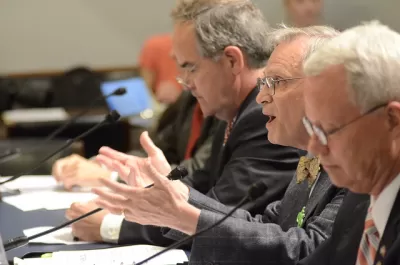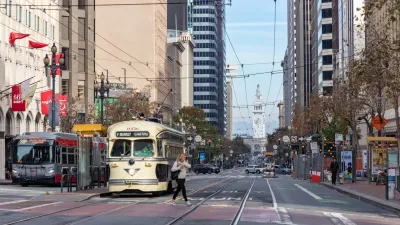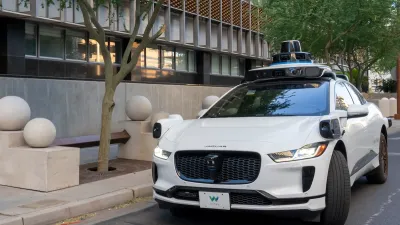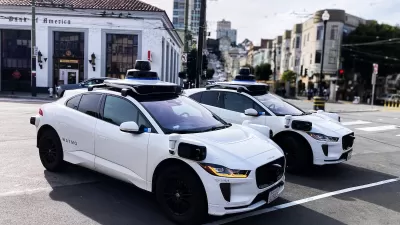Rep. Earl Blumenauer (D-Ore.), a famous advocate for alternative transportation, has thrown his support behind the epoch-changing potential of self-driving cars.

Rep. Earl Blumenauer writes an argument of positive support for Wired, beginning with an unequivocal statement of immense scope:
The powerful disruptive force of car sharing services like Uber and Lyft will rapidly be joined by autonomous vehicle technology. A huge part of our economy and culture—the American way of life designed around the automobile for the last century—will change.
Underlying Rep. Blumenauer's argument is the assumption that Congress is currently held hostage by the automobile. That could all change, however, and quickly. As Rep. Blumenauer writes: "I’ve never seen a combination of technological changes converge with this level of speed and intensity before."
The editorial, however, functions less as a paean and more as an appeal—to move quickly to take advantage of the coming wave of innovation and overthrow the captive power of the soon-to-be obsolete infrastructure and politics of the automobile. The article even includes a playbook, of sorts, which starts with an example taken from Rep. Blumenauer's home state of Oregon, which has pioneered the use of vehicle miles traveled (VMT) to charge for the use of roads and highways, rather than relying on the broken mechanism of the gas tax, with its OReGO pilot program. "Integration of this miles traveled charge into market-ready and emerging vehicle technology can provide data to drive transportation planning decisions," writes Rep. Blumenauer.
FULL STORY: Let’s Use Self-Driving Cars to Fix America’s Busted Infrastructure

Alabama: Trump Terminates Settlements for Black Communities Harmed By Raw Sewage
Trump deemed the landmark civil rights agreement “illegal DEI and environmental justice policy.”

Planetizen Federal Action Tracker
A weekly monitor of how Trump’s orders and actions are impacting planners and planning in America.

The 120 Year Old Tiny Home Villages That Sheltered San Francisco’s Earthquake Refugees
More than a century ago, San Francisco mobilized to house thousands of residents displaced by the 1906 earthquake. Could their strategy offer a model for the present?

In Both Crashes and Crime, Public Transportation is Far Safer than Driving
Contrary to popular assumptions, public transportation has far lower crash and crime rates than automobile travel. For safer communities, improve and encourage transit travel.

Report: Zoning Reforms Should Complement Nashville’s Ambitious Transit Plan
Without reform, restrictive zoning codes will limit the impact of the city’s planned transit expansion and could exclude some of the residents who depend on transit the most.

Judge Orders Release of Frozen IRA, IIJA Funding
The decision is a victory for environmental groups who charged that freezing funds for critical infrastructure and disaster response programs caused “real and irreparable harm” to communities.
Urban Design for Planners 1: Software Tools
This six-course series explores essential urban design concepts using open source software and equips planners with the tools they need to participate fully in the urban design process.
Planning for Universal Design
Learn the tools for implementing Universal Design in planning regulations.
Clanton & Associates, Inc.
Jessamine County Fiscal Court
Institute for Housing and Urban Development Studies (IHS)
City of Grandview
Harvard GSD Executive Education
Toledo-Lucas County Plan Commissions
Salt Lake City
NYU Wagner Graduate School of Public Service





























